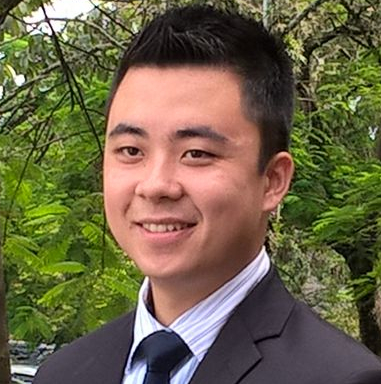Researchers
Current Researchers

Boris Goenaga
Postdoctoral Scholar
Research Interests: Resilience of Transport Infrastructure Systems, Pavement Management Systems – Pavement Friction Management Program, Highway Safety
Personal Interests: I love dogs, I have a Pug whose name is Frank (he actually believes he is a MIB agent). During my free time I enjoy reading books and, though I am not a big comic fan, I certainly enjoy watching a good superhero movie
Research Summary: My current research deals with improving how engineers manage the structural and frictional performance of pavements. This management process has long-lasting impacts on the total transportation system and its economic, environmental, and social dimensions. Pavement management is the process of planning the maintenance and repair of a network of roadways, optimizing the budget allocation to maintain a good performance. A Pavement Friction Management program relates friction and surface condition with highway safety. My research goal is to find a relationship between the most common pavement indices used in a PMS with highway safety (number of crashes or crash rate), and accounts for safety performance in the PMS decision making. The resilience of transport infrastructure systems refers to their ability to withstand and recover from disruptions caused by natural disasters, accidents, or other adverse events. In this sense, my research evaluates the vulnerability of road infrastructure systems to unexpected events. To do so, I study the role of a PMS to cope with extreme weather events, and evaluate possible adaptation strategies.

Zhe “Alan” Zeng
Postdoctoral Scholar
Research Interests: Mechanical modeling of asphaltic materials; Nondestructive evaluation of pavement; Climate change impacts on pavement infrastructural system.
Personal Interests: I enjoy maintaining a healthy lifestyle through regular exercise, exploring tasty food, and ensuring I get enough restorative sleep.
Research Summary: I am currently working on characterizing damage mechanisms and predicting the behavior of asphaltic materials and pavements. Building upon this foundation, I aim to enhance pavement performance characterization through nondestructive techniques. Additionally, from the perspective of infrastructure systems, I am interested in exploring the impact of global climate change conditions on pavement performance.
 Kazuo Kuchiishi
Kazuo Kuchiishi
PhD Candidate
Dissertation: Experimental and Analytical Contributions to the Fatigue Cracking Modeling of Asphalt Mixtures
Research Interests: Asphalt materials characterization, Pavement design and analysis, Cold recycled mixtures, Modeling of asphalt materials.
Personal Interests: Spending time with family, either watching a movie, playing games, or running after my daughter at the park!
Research Summary: MThe asphalt community has been trying to find a test method that can be practically implemented by agencies and contractors, but at the same time is theoretically robust and accurate for performance predictions. My research will help fill this gap by improving the fatigue performance predictions and by simplifying the test protocol needed to characterize the simplified viscoelastic continuum damage (S-VECD) model. As part of my research, tolerance and precision limits were proposed to improve the dynamic modulus test reliability. Refinements were also made to the S-VECD failure criterion definition that allows for more accurate performance predictions. Finally, a simplified test protocol was recommended and validated. This protocol allows a user to characterize the S-VECD model using much less material and reducing the testing time without affecting the S-VECD model ability to predict the long-term performance of asphalt pavements.

Saqib Gulzar
PhD Candidate
Dissertation: Towards an improved understanding of viscoelastic, damage, and healing mechanics of asphalt binder systems
Research Interests: Mechanistic modeling and characterization of asphalt materials; Sustainable infrastructure materials, and Infrastructure resilience modeling under climate change and extreme events
Personal Interests: Reading, painting, writing vignettes, and traveling.
Research Summary: My primary research is in the field of infrastructure materials and resilience, and my ongoing research centers on employing bottom-up, multiscale mechanistic investigations to explore asphalt concrete and its primary constituent asphalt binder. These investigations involve rheological characterization of asphalt binders, understanding the underlying damage and healing mechanics, and performance evaluation of asphalt concrete for viscoelastic, viscoplastic, and fatigue damage characterization. Additionally, I employ top-down systems studies to uncover needs and knowledge gaps that can be informed by the findings of the bottom-up investigations. These studies include assessment of impact of extreme events such as flooding and heatwaves on pavement structural performance, modeling the impact of climate change on road networks, and developing quantification techniques and metrics to model the existing vulnerabilities at material, pavement, and network scales. Overall, my work focuses on leveraging the bottom-up fundamental understanding of material behavior and pavement response to understand, inform, and address the needs and knowledge gaps at the top-down systems analysis of the built infrastructure. Please visit my website to learn more.

Omar Othman
PhD Student
Dissertation: TBD
Research Interests: Mechanistic-Empirical Pavement Design, Asphalt Mixtures Testing, Recycled Materials in Asphalt Mixtures
Personal Interests: Traveling, watching anime, some sports at beginner level (weightlifting, ping pong, yoyo, soccer)
Research Summary: My current research deals with verifying or refining the Virginia Department of Transportation (VDOT) Balanced Mix Design (BMD) performance thresholds for empirical tests for asphalt mixtures distresses including fatigue and rutting. This research will be done by testing different mixtures using both empirical tests (Ideal CT and APA) and fundamental tests (Cyclic Fatigue and Stress-Sweep Rutting) and finding correlations that will either verify or improve previously established criteria. The study materials will include a control mixture along with other mixtures such as BMD mixtures, WMA mixtures, mixtures with different RAP contents and recycling agents, a mixture with fibers, and some combinations of these alterations. After establishing the empirical tests criteria, the results will be incorporated alongside the volumetric properties of asphalt mixtures into the Mechanistic-Empirical structural pavement design to practically integrate mix design with structural design.

Jaime Preciado
PhD Student
Thesis: TBD
Research Interests: Recycled materials, Sustainable asphalt concrete materials, Multiscale characterization and modelling of asphalt materials, Digital Image Processing (DIP) techniques for asphalt concrete images.
Personal Interests: Traveling, cooking and reading novels
Research Summary: The preservation of natural resources has become a motivation for research aimed at developing sustainable pavement infrastructures. The growing attention towards the use of recycled materials in asphalt mixtures, such as reclaimed asphalt pavement (RAP), has led highway agencies to consider the feasibility of allowing high levels of RAP on asphalt mixtures. My current research is about evaluating the effect of recycling agents (RAs) on the rheological performance of RAP recovered binder for the Virginia Department of Transportation (VDOT). In this way, a performance-based parameter(s) can be developed for assessing acceptance of RAs and RAs dosages.
 Pablo Vestena
Pablo Vestena
PhD Student
Thesis: TBD
Research Interests: Asphalt mixture testing and modelling, Pavement performance, Mechanistic-empirical pavement design.
Personal Interests: My personal hobbies are cooking, jogging, and travelling. I also love watching movies and soccer games
Research Summary: My current project is identifying tests and procedures to implement in NCDOT’s Balanced Mix Design (BMD). The research will evaluate different NC asphalt mixtures using index-based tests, such as Ideal CT and APA, to define feasible threshold limits for mix design and quality assurance/control operations. Subsequently, a mix design procedure will be drafted in a way that existing volumetric and threshold limits can be balanced to ensure long-lasting materials. Along with that, performance-based tests, together with pavement predictions methodologies, will be applied to understand the current state of practice, to predict long-term performance, and to help validate the proposed limits. Finally, the project will sum up the economical impacts of redefining some mix designs, adding more testing effort, with the expected long-term performance benefits for applying a BMD approach.

Matheus Jesus Ribeiro Araujo
PhD Student
Dissertation: TBD
Research Interests: Pavement design and evaluation, soil characterization for pavement purposes, Modeling Techniques applied to Pavement materials.
Personal Interests: I like to enjoy listening to music, watching movies and TV shows, traveling, and spending time with my family and friends.
Research Summary: I am currently part of a project focused on identifying and prioritizing vulnerable road segments as part of a proactive resilience planning and risk response program. For this purpose, pavement damage sites observed after extreme events, such as hurricanes and tropical storms, are being investigated. As a result, we expect to identify a series of attributes that influence the vulnerability of these structures, optimizing future preventive measures and road construction.
 Benson Munywoki
Benson Munywoki
MS Student
Thesis: TBD
Research Interests: Pavement sustainability – users, materials, and environment. Pavement performance – pavement friction management and highway safety.
Personal Interests: I love music and dance. I am always eager to visit a new place and have a new experience. I love watching soccer.
Research Summary: My current research is focused on studying the microtexture and macrotexture properties of Superpave gyratory specimens. Three main tests will be used to collect data, Ames Engineering Laser Texture Scanner, Sand Patch Test (SPT) for measuring macrotexture, and British Pendulum Tester (BPT) for micro-texture measurements. The data collected will be used to carry out a series of regression analyses to develop one or more relationships between macrotexture, mix constituents, and volumetric properties. In addition, I will evaluate the friction properties based on three-dimensional (3D) areal parameters. The aim of doing 3D analysis is to see how areal texture parameters can be used to characterize surface texture functionality and better understand texture parameters in different perspectives that the traditional 2D texture parameters do not achieve.
Past Researchers
Post-Doctoral Scholars
Dr. Waleed Zeiada (2012 – 2014) – Cyclic Fatigue and Healing + Fiber Reinforced Asphalt Concrete Mixtures
Dr. Jeffrey Stempihar (2015 – 2017) – Fiber Reinforced Asphalt Concrete Mixtures
Dr. Padmini Gudipudi (2016 – 2017) – Climate Impacts to Pavements
Dr. Kangjin ‘Caleb’ Lee (2020-2021)-Cyclic Fatigue Damage: Effects of Temperature
Dr. Jing Ding (2022) -S-VECD Model Uncertainty
PhD Students
Deepika Karanam (2023) – Determination of Pavement Condition Surveying Frequency Using Probabilistic Modeling with Bayesian Spatiotemporal Inference Techniques, North Carolina State University
Narges Matini (2023) – Evaluation of Structural Performance of Flexible Pavements under Extreme Events, North Carolina State University.
Mayzan Isied (2023) – Critical Assessment of Asphalt Mixture Design Procedures and Asphalt Mixture Classification Systems, North Carolina State University.
Jing Ding (2022) – Improving the Reliability of a Continuum Damage Model of Asphalt Mixture by Integrating Uncertainty Quantification and Stochastic Modeling, North Carolina State University
Amir Ghanbari (Co-Chair with Richard Kim) (2020)-Performance and Reliability Analysis of Asphalt Mixtures in Performance Related Specification (PRS), North Carolina State University
Kangjin ‘Caleb’ Lee (Co-Chair with Cassie Castorena and Richard Kim) (2020)-Development of Small Geometry for Cyclic Fatigue Testing of Asphalt, North Carolina State University
Hossein Noorvand (Co-Chair with Kamil Kaloush) (2020) – Advancing Knowledge of Mechanically-Fiber Reinforced Asphalt Concrete, Arizona State University
Kangjin Lee (Co-Chair with Richard Kim and Cassie Castorena) (2020) – Improvement in Dynamic Modulus and Cyclic Fatigue Testing of Asphalt Mixture, North Carolina State University
Yizhuang Wang (Co-Chair with Richard Kim) (2019) – Development of the Performance-Related Specification for Hot Mix Asphalt Pavements and a Performance-Engineered Asphalt Mixture Design Method Using Mechanistic Performance Models, North Carolina State University
Ramadan Salim (2019) – Asphalt Binder Parameters and their Relationship to the Linear Viscoelastic and Failure Properties of Asphalt Mixtures, Arizona State University
Akshay Gundla (2018) – Understanding Viscoelastic Behavior of Asphalt Binders Through Molecular Structure Investigation, Arizona State University
Jose Medina (Co-Chair with Dr. Kamil Kaloush) (2018) – A Simplified Pavement Condition Assessment and its Integration to a Pavement Management System, Arizona State University
Padmini Gudipudi (2016) – Investigation and Improvement in Reliability of Asphalt Concrete Fatigue Modeling using FAM, Arizona State University
MS Students
Taslima Elma (2024) – Assessing Climate Change Impact on Asphalt Pavements in Arizona and Implications to Aging in the US, North Carolina State University
Nate Williams (2021) – Assessment of the Variation of Asphalt Mixture Properties from Mixtures of the Same Classification, North Carolina State University
Sathish Nagarajan (2015) – Impact of Forecasted Freight Trends on Highway Pavement Infrastructure, Arizona State University
Akshay Gundla (2014) – Use of Micro-Mechanical Models to Study the Mastic Level Strucutre of Asphalt Concretes Containing RAP, Arizona State University
Jose Medina (Co-Chair with Dr. Kamil Kaloush) (2014) – Properties of Activated Crumb Rubber Modified Binders, Arizona State University
Ryan Stevens (2014) – Development of Paint Stripe Testing Protocol, Arizona State University
Past Students – Secondary/External Advisor
PhD Students
Andrew Fried (2023), North Carolina State University
Douglas Mocelin (2023), North Carolina State University
Jaehoon Jeong (2022), North Carolina State University
Noor Saleh (2022), North Carolina State University
Jamie Heo (2021), North Carolina State University
Matthew Aguoya (2018), Arizona State University
Pugazhvel Palanivelu (2017), Arizona State University
Yiming Yao (2016), Arizona State University
Vikram Dey (2016), Arizona State University
David Mensching (2015), University of New Hampshire [External Member]
Fangjin Li (2023), Hong Kong Polytechnic, China [External Member]
Patricia Osmari (2021), UFRJ, Brazil [External Member]
Bhaskar Partim (2021), NIT Guwahati, India [External Member]
Sameera Pitawala (2021), Monash University, Australia [External Member]
Noe Fernandez (2019), UNAM, Mexico [External Member]
Erman Gungor (2020), University of Illinois Urbana-Champaign [External Member]
Arooran Sountharajah (2018), Monash University, Australia [External Member]
Alieh Alipour (2017), TU Delft, Netherlands [External Member]
MS Students
Conor O’Toole (2022), North Carolina State University
Benjamin Fonte (2019), North Carolina State University
Andrew Fried (2019), North Carolina State University
Esai Ponce (2019), Arizona State University
Abril Yu-Shan (2019), Virginia Tech [External Member]
Mounica Vinayakamurthy (2017), Arizona State University
Michelle Beckley (2016), Arizona State University
Talal Thwaini (2016), Arizona State University
Kan Wu (2015), Arizona State University
MCE Students
Dana Alsader (2016), Arizona State University
Sarah Hariz (2016), Arizona State University
Guru Sai (2016), Arizona State University
Brenda Soto (2015), Arizona State University
Jaesik Choi (2014), Arizona State University
Babu Kannapan (2014), Arizona State University
Erick Ponce (2014), Arizona State University
Sam Enmon (2013), Arizona State University
Onyekachi Abarikwu (2013), Arizona State University
Rohit Ramesh (2013), Arizona State University
